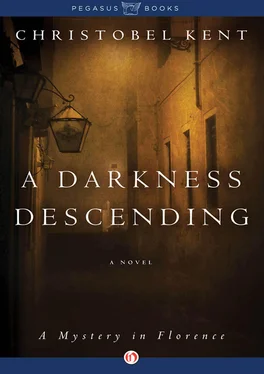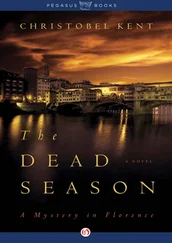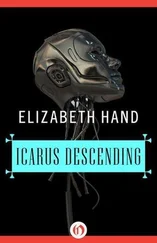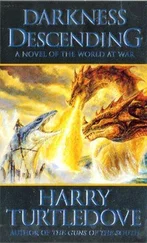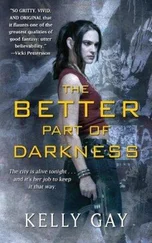Christobel Kent - A Darkness Descending
Здесь есть возможность читать онлайн «Christobel Kent - A Darkness Descending» весь текст электронной книги совершенно бесплатно (целиком полную версию без сокращений). В некоторых случаях можно слушать аудио, скачать через торрент в формате fb2 и присутствует краткое содержание. Год выпуска: 2013, ISBN: 2013, Издательство: Corvus, Жанр: Криминальный детектив, на английском языке. Описание произведения, (предисловие) а так же отзывы посетителей доступны на портале библиотеки ЛибКат.
- Название:A Darkness Descending
- Автор:
- Издательство:Corvus
- Жанр:
- Год:2013
- ISBN:9780857893260
- Рейтинг книги:5 / 5. Голосов: 1
-
Избранное:Добавить в избранное
- Отзывы:
-
Ваша оценка:
- 100
- 1
- 2
- 3
- 4
- 5
A Darkness Descending: краткое содержание, описание и аннотация
Предлагаем к чтению аннотацию, описание, краткое содержание или предисловие (зависит от того, что написал сам автор книги «A Darkness Descending»). Если вы не нашли необходимую информацию о книге — напишите в комментариях, мы постараемся отыскать её.
A Darkness Descending — читать онлайн бесплатно полную книгу (весь текст) целиком
Ниже представлен текст книги, разбитый по страницам. Система сохранения места последней прочитанной страницы, позволяет с удобством читать онлайн бесплатно книгу «A Darkness Descending», без необходимости каждый раз заново искать на чём Вы остановились. Поставьте закладку, и сможете в любой момент перейти на страницу, на которой закончили чтение.
Интервал:
Закладка:
It was eight in the morning, the sky was blue and the September air fresh through the open window; the gust of it that had come in with his wife Luisa from her dash to the market smelled of fallen leaves. She’d set a bag of bread and a butcher’s packet of something, stained pink, on the table. A small box of mushrooms, the yellow trumpet-shaped ones, with shreds of moss still clinging to them, and a plastic carton of green figs, the last of them, oozing sweeter than honey.
Now Sandro sat back in his chair, closed his eyes and allowed September to soothe him. August was over, that was something to celebrate in itself. They’d had a holiday this year: after last year’s terrible, suffocating month in the city, they’d made an unspoken agreement, never again. So this year they’d borrowed someone’s mother’s place in Castiglioncello, an old lady’s house smelling of mothballs and damp, and gone there for three weeks. Not an unalloyed success — neither Sandro nor Luisa was good at idle holiday pursuits, she would rather cook than be served at table, whiling away the hours playing cards seemed nothing but a waste of time — but five or six days into their confinement something had come over them, something almost like the holiday spirit had taken them by surprise.
They had found themselves going out for an aperitivo together at six, first one night, then the next, then every night as if it were the most natural thing in the world, rather than something they’d last managed more than a year before. They had gone to the little outdoor cinema tucked away in the old town between whitewashed walls, with weeds growing up through the cracked paving, and watched an ancient Fellini film with half a dozen other couples. They had walked along the beach in the cool early morning, watching the sun come up, not hand in hand because it wasn’t their way, Luisa a little in front and holding her hem out of the water.
Three old women in flowered housecoats had walked ahead of them in the pale dawn doing the same, slow, apparently aimless, talking around in circles about grandchildren and church and the baker’s wife’s affair. Apparently aimless but actually restoring order to the world … this was the revelation that had come to Sandro as he found himself slowing his pace, realizing that as he wasn’t actually heading anywhere, there was no point in going there fast. Holidays: perhaps there was something to them, after all.
They hadn’t worried about Giuli either, minding the office for them in the city after taking her own two weeks at the end of July, because she had someone of her own, now.
A neglected child, an abused adolescent, Giuli had ended up in prison for taking a violent revenge on her abuser. It had brought her into Sandro’s life — he’d been her arresting officer — and had indirectly led to his premature departure from the police force. Not disgraced, no one thought that any more, not for passing information on the abuser to a bereaved father, but rules were rules, always had been. Giuli had been released from prison more or less into Sandro and Luisa’s care. All parties being adults, no one had had to ask anyone’s permission or sign any papers, but it had been an unorthodox arrangement for the couple, childless and now too old to have children, to decide to love and protect Giuli, in so far as they were capable of doing so. And now after forty years and more of having to fight her own corner, Giuli had Enzo, too.
Reading her husband’s mind, Luisa called over her shoulder from the fridge where she was putting the meat: involtini stuffed with sage and ham, four sausages, only the two of them to feed.
‘You know we’re supposed to be eating with them Saturday night?’
Today was Tuesday. She hadn’t even needed to say who they were. Brushing herself down in an unconscious and familiar gesture that made Sandro smile and want to take hold of her, she ran her hands under the tap and sat down at the table with him.
‘Yes,’ he said mildly. God only knew what Giuli would cook: it wasn’t her forte. Her mother would never have made housewife of the year even if she’d lived to see Giuli hit fourteen. The girl had been fed on packet cakes and fizzy drinks then her mother had died and she’d stopped eating anything at all.
‘I said I’d bring something,’ Luisa said. Mind-reading again.
And he looked down once more at the letter from the insurance company. Fraudulent: it was a nasty word for something everyone did. ‘Who isn’t fraudulent?’ he said out loud.
‘Me,’ Luisa said. ‘I’m not fraudulent. Never took a piece of stock home, nor even a paperclip, never cheated my taxes.’
‘No,’ Sandro said. ‘Why is that?’ And she’d turned her back on him with the ghost of a smile.
‘He’s claiming post-traumatic stress stopped him working,’ Sandro added. Luisa made a sound of deep cynicism and he raised his head to monitor his wife, his infallible moral compass. Sometimes it was tricky, living with a moral compass that accurate.
‘Weren’t you ever even tempted?’ he asked. ‘To steal just one paperclip? Or something more appealing maybe. A pair of shoes … a pair of stockings … way back when.’
Way back when the store Luisa worked for, now a gleaming white and steel palace of fashion, had been principally an old-fashioned haberdasher’s with wooden drawers filled with stockings and cashmere and lawn nightdresses, hand-embroidered.
But he knew the answer. She didn’t even have to smile and shake her head: it was one of many differences between them. Sandro, like all his colleagues, would borrow stationery from the office, nip out on errands on police time, turn a blind eye. There were plenty worse than him, plenty. ‘So, why?’
She put her head on one side, thinking. ‘Because you don’t know where it would end,’ she said. ‘You have to have rules for yourself.’ And straightened, haughtily. ‘Where was post-traumatic stress after the war? In ‘sixty-six after the floods?’ And snorted.
‘Well, yes,’ he said. ‘I know. But it was an accident, not his fault, woman shunted him on the motorway. Someone in the car behind her died.’
Sobered slightly, Luisa had pursed her lips. ‘Still,’ she said.
‘He’s got psychiatric reports, and everything,’ Sandro said.
‘That in itself …’ Luisa said. ‘That’s not someone whose life has been knocked for six. Commissioning psychiatric reports? Looking for compensation.’
‘Catch-22,’ Sandro said, groping mentally for a faded image. He’d read the book, thirty years before. ‘Isn’t that the situation? If you’re really crazy, you wouldn’t be asking for the psychiatrist. Something like that.’
Luisa ignored the reference: she hadn’t read Catch-22. It would, Sandro realized, have annoyed her too much. ‘Still,’ she said, ‘I suppose that’s not your job. To make a judgement.’
‘Fortunately not,’ Sandro said. It hadn’t been his job to make judgements as a police officer either, not really: then, too, his job had been to gather the evidence and hand it on. Not that it had stopped him: taking judgement into his own hands had been what got him kicked out of the force.
He shuffled the papers into some kind of order, slid them into his briefcase. Checking this insurance claim was looking like the worst kind of job. Fiddly, small-scale, and already it seemed to be requiring him to examine his own conscience into the bargain.
‘It’s all money, though,’ Luisa commented, although he’d said nothing. ‘It’s all work.’ Sandro got to his feet, tempted to laugh at himself, or at her, for the precision with which she could read his expression. Extraordinary that she could still be bothered, after all these years, to make sense of him.
Читать дальшеИнтервал:
Закладка:
Похожие книги на «A Darkness Descending»
Представляем Вашему вниманию похожие книги на «A Darkness Descending» списком для выбора. Мы отобрали схожую по названию и смыслу литературу в надежде предоставить читателям больше вариантов отыскать новые, интересные, ещё непрочитанные произведения.
Обсуждение, отзывы о книге «A Darkness Descending» и просто собственные мнения читателей. Оставьте ваши комментарии, напишите, что Вы думаете о произведении, его смысле или главных героях. Укажите что конкретно понравилось, а что нет, и почему Вы так считаете.
